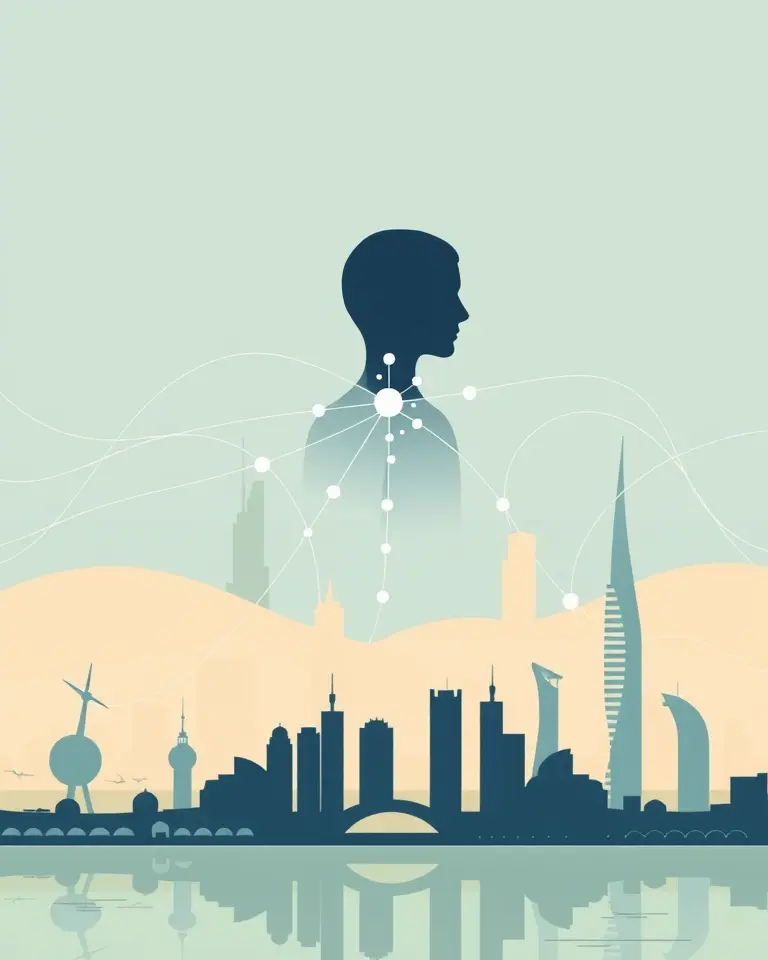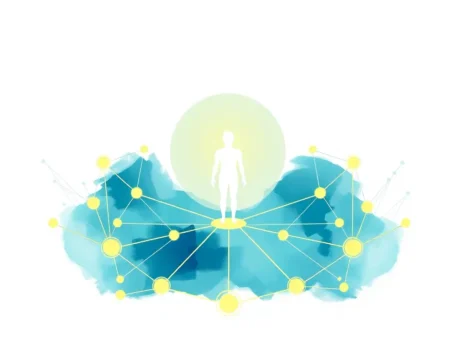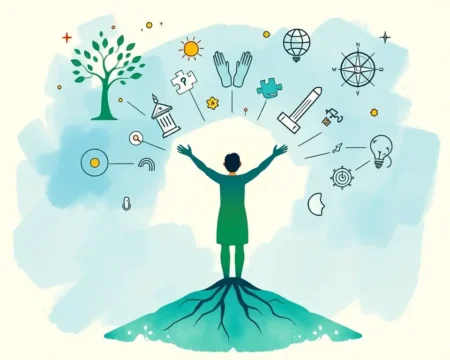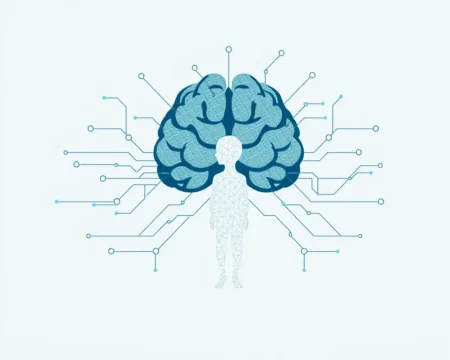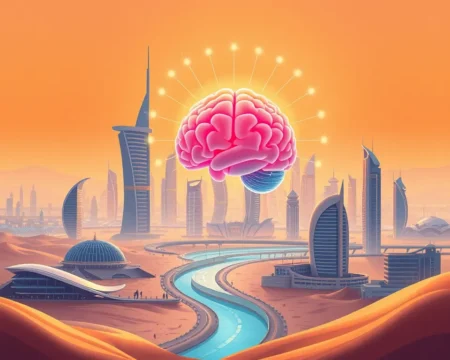Dubai is poised to launch a new self-help application leveraging artificial intelligence (AI) to enhance the mental well-being of its residents. This initiative is part of a comprehensive Mental Wealth Strategy that aims to transform mental health care in the emirate and destigmatize psychological well-being. The app is expected to be available by the end of 2025.
AI-Powered App for Mental Resilience
The upcoming self-help app will utilize AI to provide users with daily strategies, tips, techniques, and lifestyle habits designed to promote mental resilience. Dr. Maryam Thani Al Mheiri of the Dubai Health Authority (DHA) clarified that the app is not a diagnostic tool but rather a mental well-being enhancement tool, offering self-care techniques to help individuals manage stress. More details about the application are expected to be released at a later date. This app is a key part of Dubai’s broader strategy to address mental health proactively.
Focus on Self-Care Techniques
The app will focus on empowering individuals to take control of their mental well-being through self-care. It aims to provide accessible and convenient support, especially for those who may have limited access to traditional therapy services. The use of AI will allow for personalized recommendations and support, potentially improving the effectiveness of the app for each user.
Dubai’s Mental Wealth Strategy
The introduction of this AI-powered app is just one element of the broader Mental Wealth Framework, launched in July 2024 by the DHA. The framework aligns with the Dubai Social Agenda 33 and emphasizes awareness, early prevention, accessibility to mental health services, and innovation.
Key Components of the Framework
Besides the self-help app, the strategy includes several other key initiatives:
- Expansion of Anti-Burnout Sessions: The plan includes increasing the availability of anti-burnout sessions to address workplace stress.
- Doubling Psychiatric Beds: The emirate aims to double the number of psychiatric beds by the end of 2025 to meet the growing demand for in-patient mental health care.
- Training for General Practitioners (GPs): The DHA has trained 125 physicians to detect mental health red flags in patients during routine consultations for physical ailments. This initiative aims to identify and address underlying mental health issues that might otherwise go unnoticed.
The Rationale Behind the Strategy
The strategy is a response to the increasing recognition of the importance of mental well-being in a fast-paced urban environment. It seeks to create a more supportive and understanding community where people feel comfortable seeking help. This comprehensive approach seeks to move beyond just treating mental health issues to creating an environment that promotes mental resilience from the outset.
The Role of AI in Mental Health
The use of AI in mental health is gaining momentum globally, and Dubai is at the forefront of implementing these innovative solutions. AI has the potential to revolutionize mental health care in several ways:
- Early Detection: AI algorithms can analyze large datasets, such as medical records, to identify individuals at risk of developing mental health concerns. This early detection can allow for timely interventions and improved outcomes.
- Personalized Treatment Plans: AI can process a variety of data, including biomarkers, genetics, medical history, and lifestyle factors, to create personalized therapy regimens. This can maximize the efficacy of treatment plans.
- Accessible Interventions: AI-based systems can deliver mental health interventions, like cognitive behavioral therapy (CBT), in virtual environments, improving access to care, especially in areas with limited resources.
- Continuous Monitoring: AI systems can track mood fluctuations and predict relapse risks, allowing for timely adjustments to treatment plans.
- Emotional Support: AI-powered chatbots can offer emotional support and guidance, providing a readily available resource for individuals in need.
AI in Mental Health: Beyond Chatbots
AI’s applications in mental health go beyond simple chatbots, encompassing:
- Analysis of Speech Patterns: AI can analyze speech patterns for signs of mental distress.
- Facial Expression Recognition: Algorithms can detect changes in facial expressions indicative of mood changes.
- Analysis of Social Media Activity: AI can monitor social media activity for signs of cyberbullying, anxiety, or depression.
Existing Mental Health Apps in the UAE
While Dubai’s new app is eagerly anticipated, several other mental health and mindfulness apps are already available in the UAE. These apps address a range of needs and offer various techniques to support mental well-being. Some of the popular apps available include:
- Headspace: This app offers guided meditations, stress management techniques, and sleep improvement programs. It is a widely used tool for both beginners and those familiar with mindfulness practices.
- Calm: This app offers guided meditations, sleep stories, breathing programs, and relaxing music. It is popular for its focus on sleep and relaxation.
- Aura: This app provides personalized mindfulness sessions to manage anxiety and improve mood. It includes meditations, stories, and life coaching lessons from various experts.
- Moodpath: This app helps users track and reflect on their mood and provides support for stress, depression, and anxiety. It is designed to give users an understanding of their mental health patterns.
- Wysa: An AI-powered chatbot that provides emotional support and therapy guidance. It offers science-backed AI conversations and self-care exercises.
- Replika: An AI companion designed for emotional support and therapeutic conversations. It personalizes interactions based on the user’s emotional state.
- Woebot: Utilizes cognitive-behavioral therapy (CBT) principles to support mental well-being, helping users to manage anxiety, depression, and stress.
- Youper: Specializes in emotional health tracking and self-care, offering psychological techniques, personalized insights, and mood tracking to support emotional well-being.
These apps provide valuable resources and support, but it’s important to recognize that they are not a substitute for professional therapy. They serve as tools for self-help, stress management, and improved emotional awareness.
The Broader Context: Mental Health in the UAE
The push for better mental health support in Dubai comes at a time when mental health is becoming an increasingly prominent concern globally. Studies show that a significant portion of the population in the UAE experience mental health issues, including depression and anxiety. There is also a growing awareness of the stigma surrounding mental health, and efforts are being made to create a more open and supportive environment.
Addressing Stigma and Access to Care
Several initiatives are underway in the UAE to address mental health stigma, improve access to care, and promote overall well-being:
- Community Programs: Organizations like Dubai Healthcare City (DHCC) have launched community programs to raise awareness and encourage dialogue about mental health.
- Anti-Stigma Campaigns: The DHA is also preparing to launch a social media anti-stigma campaign to normalize conversations surrounding mental health.
- Mental Health First Aid Training: The government is also focusing on mental health first-aid schemes to equip individuals with the skills to support those in need.
Conclusion
Dubai’s launch of an AI-powered mental health app signifies a significant step forward in addressing mental well-being through technological innovation and proactive strategies. By integrating AI, expanding services, and promoting community awareness, Dubai aims to create a society where mental health is prioritized and easily accessible to everyone. The new app, along with the other initiatives under the Mental Wealth Strategy, is set to play a crucial role in enhancing the quality of life for residents and further solidifying Dubai’s position as a forward-thinking city.




